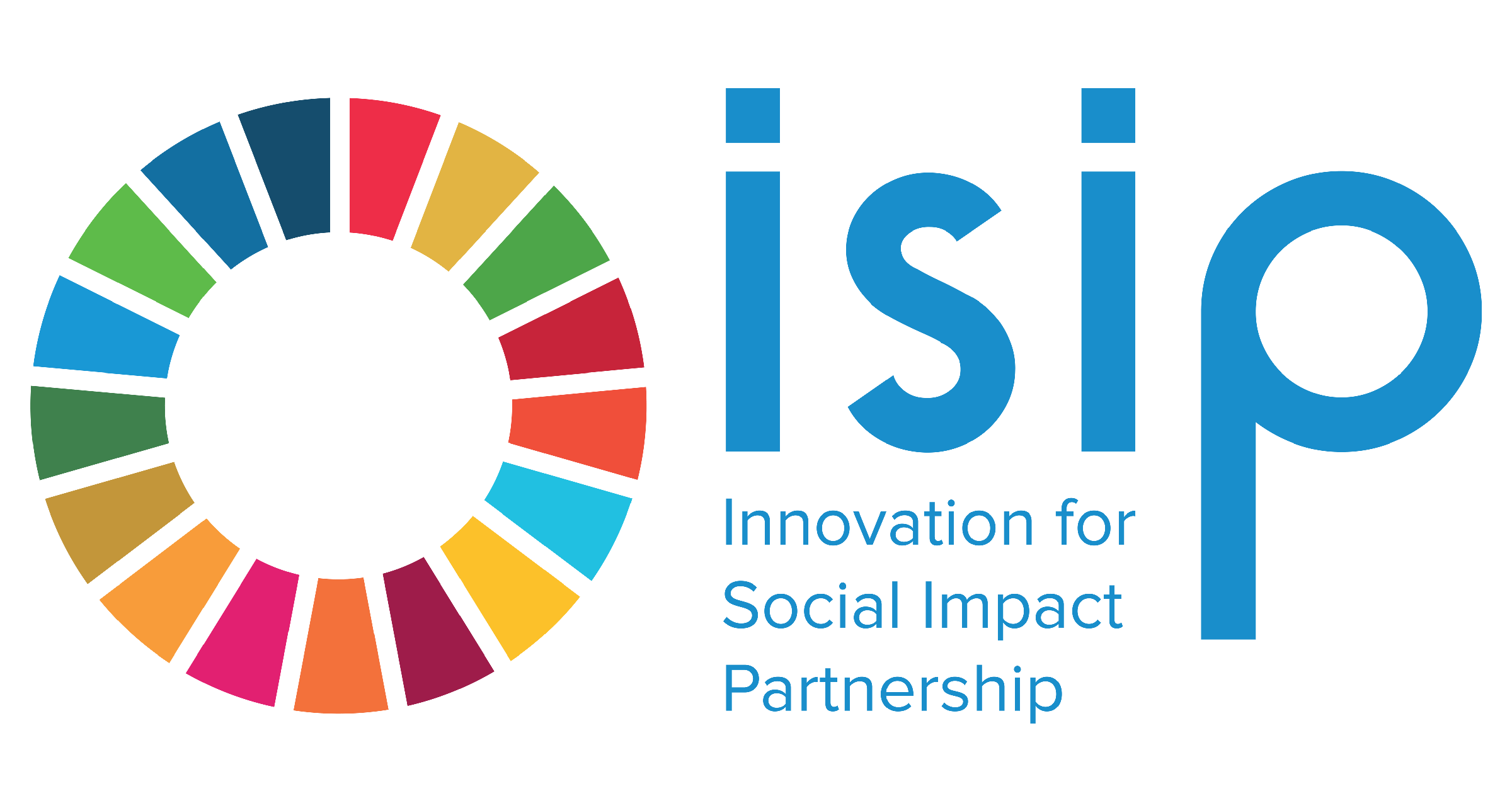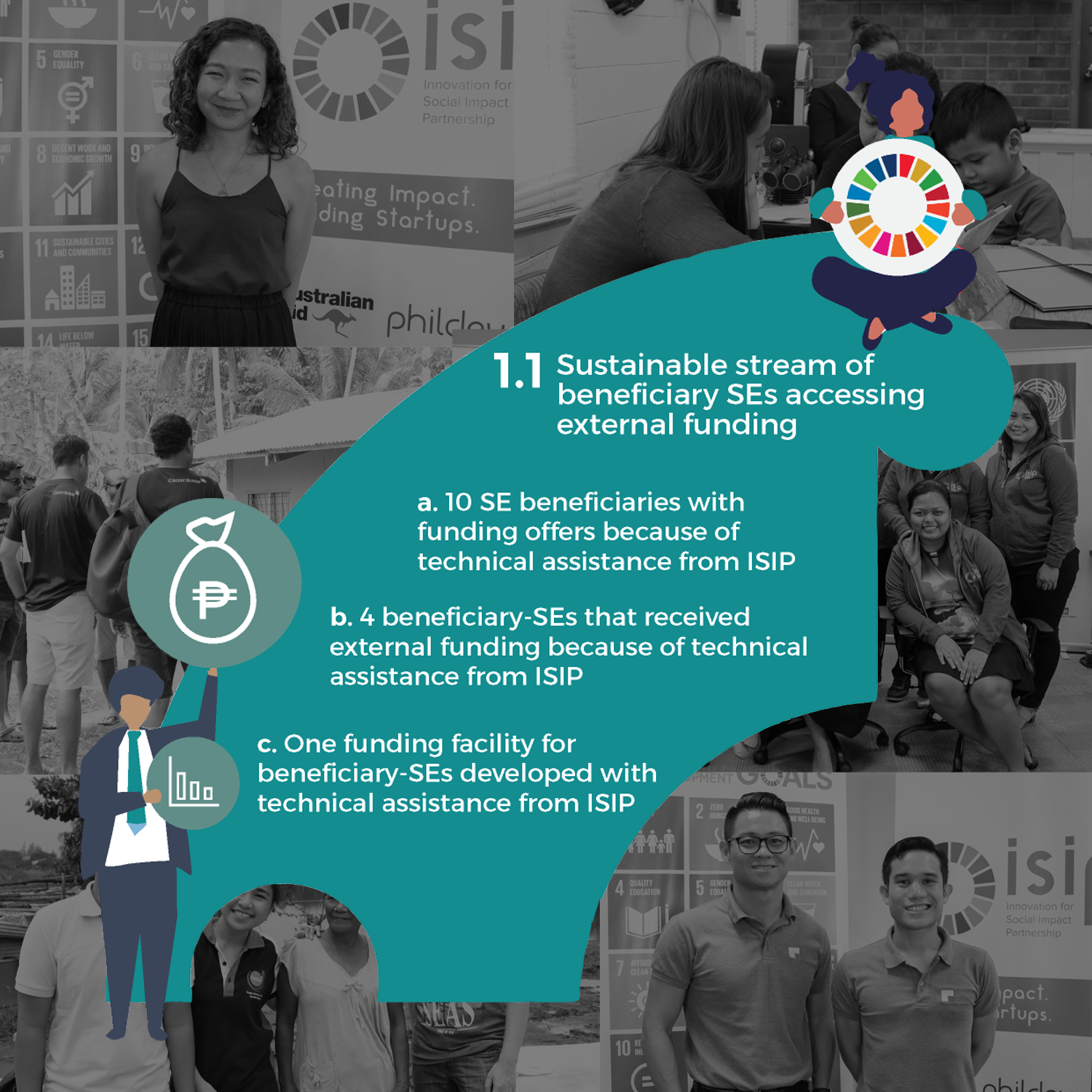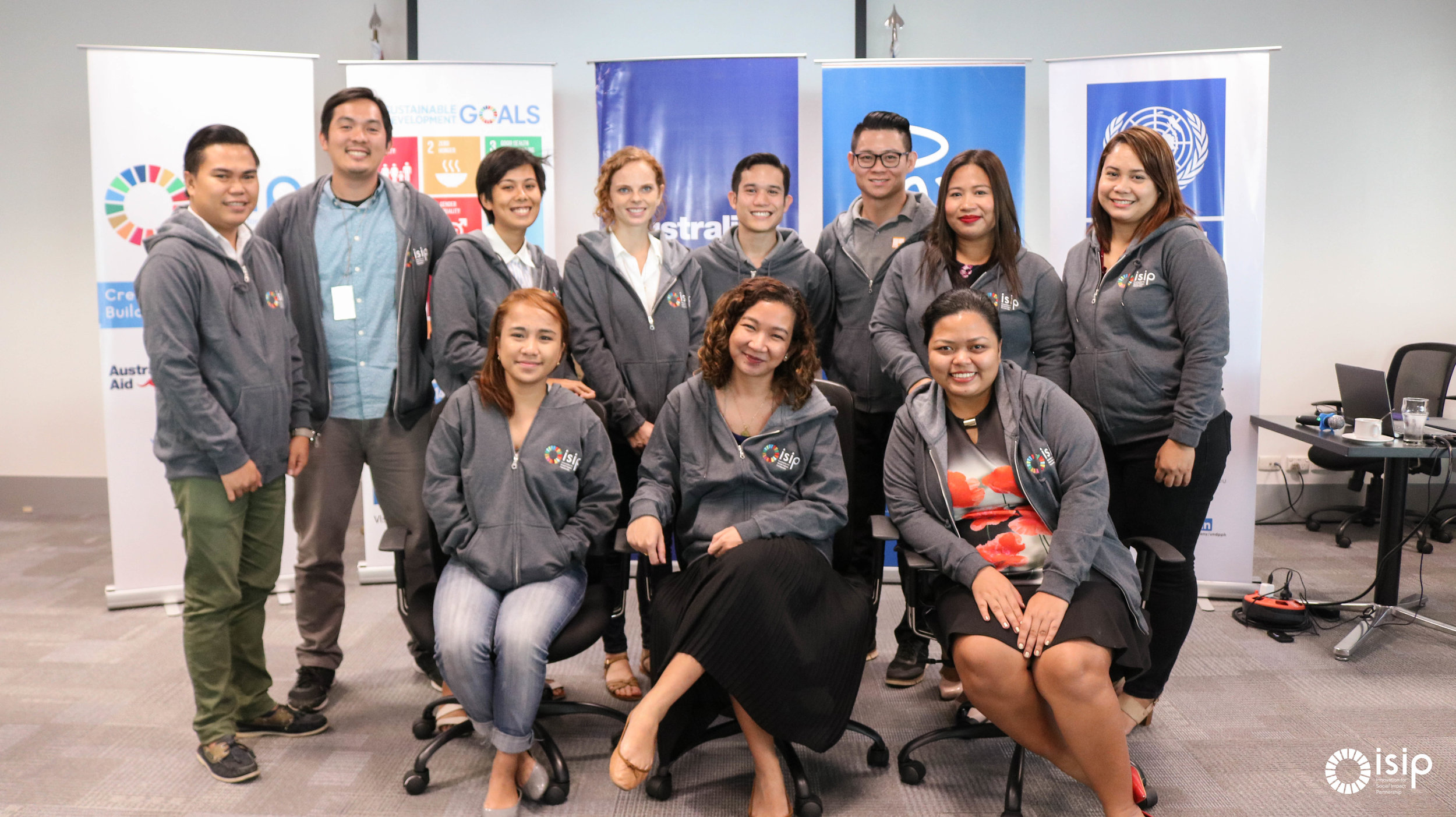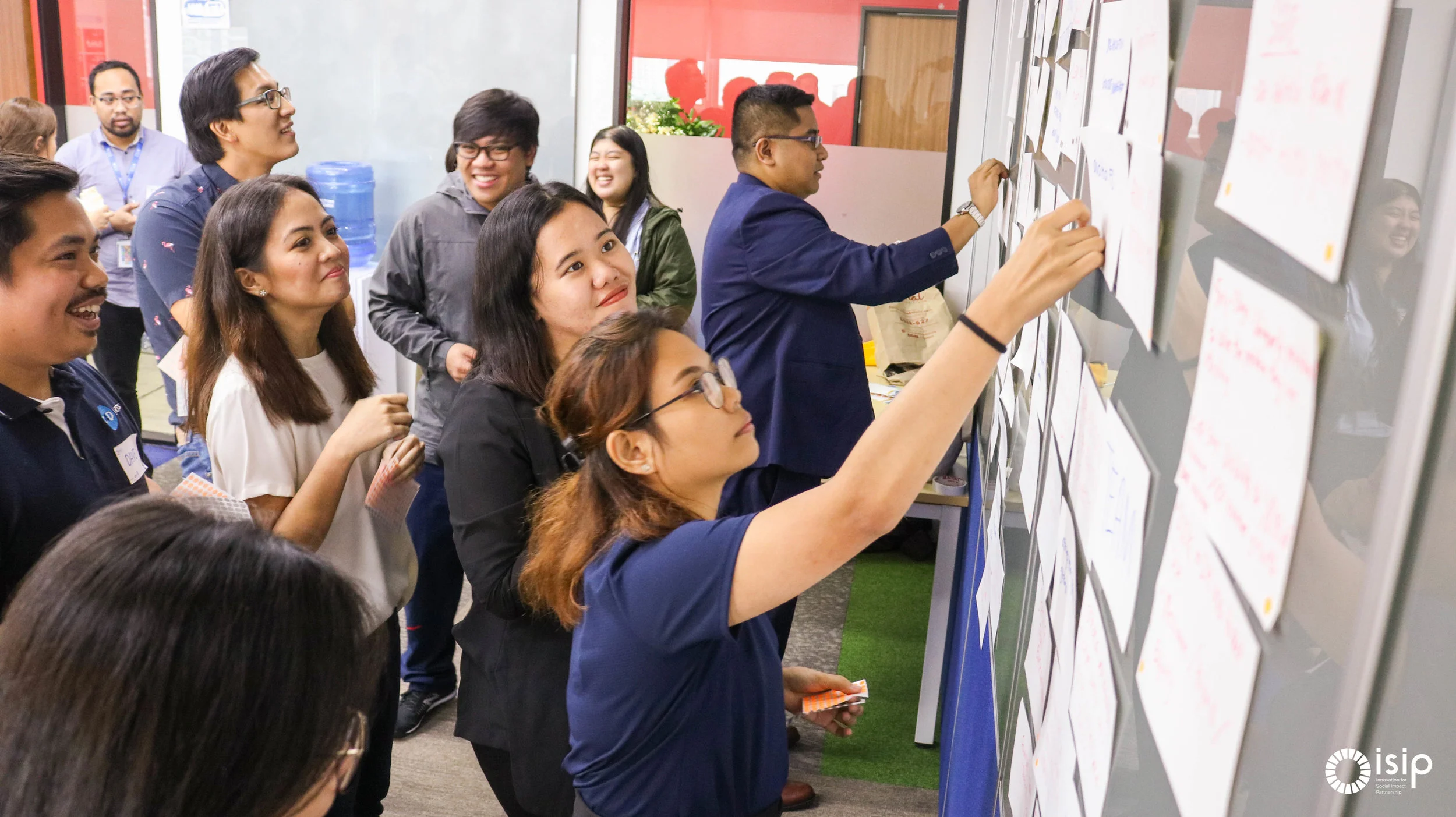ISIP Strengthens Commitment to the SDGs on Year 2, Improves Support to the Philippine Social Enterprise Ecosystem
by Adriel Nisperos
With only 11 years left until we reach 2030, how do we ensure that we reach the ambitious global goal of attaining sustainable and inclusive development in the world?
According to the 2019 Sustainable Development Goals report, the world has been continuously moving closer in meeting the UN Sustainable Development Goals (SDGs), a global commitment to become sustainable and inclusive by 2030. However, progress has been slow. Based on the projections of the UN Department of Economic and Social Affairs-Statistics Division, the world is off-target in achieving the Goals if nations do not accelerate their efforts.
One of the many ways to achieve the SDGs is through social entrepreneurship. Social enterprises have long been recognized as a key player in delivering inclusive economic growth while at the same time effecting social change. Social entrepreneurship is a way to accelerate the achievement of the SDGs. However, social enterprises face various challenges when scaling up their business and social impact; accessing financing as being the most pressing one according to a 2016 British Council study.
In 2018, the Innovation for Social Impact Partnership (ISIP) project was rolled out to respond to this development challenge having the ultimate goal of increasing the knowledge and capacity of social enterprises, higher education institutions (HEIs), and the social entrepreneurship ecosystem beneficiaries to scale their contributions to sustainable development. To achieve this, ISIP has three key strategies: Entrepreneurship, Education, and Policy Agenda.
Enabling the Catalysts of Change
Supporting innovative social enterprises in the Philippines which will accelerate the achievement of the SDGs is at the core of ISIP’s Entrepreneurship strategy. ISIP aims to help social enterprises streamline their operations and become financially viable, so they become more attractive to investors and funders. ISIP makes this happen through the Social Impact Accelerator (SIA).
The SIA provides a year-long support to social enterprises, capacitating them with essential knowledge, skills, and tools that will help them achieve scale. In the accelerator, social enterprises participate in a series of learning sessions, investor meetings, mixers, and mentoring and office hours with industry experts, fellow entrepreneurs, and global talents. But the SIA is a lot more than that.
ISIP understands that social enterprises also have a social impact to scale. That is why the SIA also puts premium on impact measurement and management. Throughout the acceleration period, social enterprises go through sessions with an expert from Business Call to Action (BCtA). The BCtA expert guides and equips them with the skills and tools to better track their business’ social impact. Through BCtA’s Impact Lab, social enterprises are able to align and ensure that their efforts are contributing to the SDGs.
[READ: Empowering Social Enterprises: How We Do It at the ISIP Social Impact Accelerator]
The story of the social enterprises in the Social Impact Accelerator can be summarized as a story of immense growth. Bambuhay, for one, joined the accelerator to learn how to manage their business operations more efficiently and to better monitor their social impact of promoting waste management and use of sustainable products.
For six months, Bambuhay participated in various learning sessions covering topics to enable business growth such as accessing capital and impact measurement. This was also reinforced from their mentors, Rico Gonzales and Erika Tatad of xchange, who guided them as they grew and moved further towards their goals. The combination of Rico’s rich background in social enterprise development and investment, and Erika’s firsthand experience in managing a social enterprise strengthened the mentorship support they provided for Bambuhay.
Finally, Bambuhay ends their first six months in the SIA by presenting their goals, products, and plans to potential investors at the Social Enterprise Showcase, ISIP’s version of a demo day. The Showcase is just one of ISIP’s support to increase chances of investability of the SEs. [WATCH: ISIP Social Enterprise Showcase (Demo Day) Highlights]
Despite marking the end of the SIA’s intensive support to Bambuhay during the Showcase, ISIP continuously assist them in searching for funders and investors. Just recently, Bambuhay was selected as one of the Top 10 Global Finalists for the 2019 Entrepreneurship World Cup (EWC). They will then be representing the Philippines this November at the EWC Global Finals in Riyadh, Saudi Arabia where they will be pitching to international judges and investors.
Social enterprises in the SIA successfully obtaining financing does not only mean success for ISIP, but it will also demonstrate that investing in social mission-driven ventures means good business, yielding both financial returns and positive social change in the long run.
Social Impact Accelerator Batch 1
Social Impact Accelerator Batch 2
Bambuhay is just one of the 10 social enterprises from the Social Impact Accelerator’s first batch of graduates. The other nine also received tailor-fit support from the SIA which ultimately aims to help them become investable businesses. In fact, five of them have also been keeping in touch with potential investors since the showcasing event.
On the Accelerator’s second year of implementation, ISIP took in five more social enterprises to help them become investable and ready to scale.
Transforming the Foundations
Aside from accelerator programs like the Social Impact Accelerator, ISIP recognizes that higher education institutions (HEIs) are pivotal in developing social enterprises, particularly those that are born from academic research, thesis, and feasibility studies. ISIP’s Education strategy aims to strengthen this capacity of HEIs in two ways: (1) enhancing HEIs’ social entrepreneurship education and (2) improving the business operations of HEIs’ Technology Business Incubators (TBIs).
This year, four international professors were deployed to Philippine universities as part of the Visiting Professors activity. These professors came to the country to share their international knowledge, experience, and practices in teaching social entrepreneurship in their university as well as in managing their university’s incubator facilities.
One of these professors is Meike Siegner from the University of British Columbia. She was deployed in the University of San Carlos (USC) in Cebu City to share her expertise in social entrepreneurship to USC and the social enterprises in the area. For a week, Meike engaged with the university’s faculty, students, and university-based social enterprises and conducted back-to-back learning sessions and workshops tackling sustainability, circular economy, and digital storytelling.
It was a gainful visit for both USC and Meike. Beyond the knowledge and lessons learned from the exchanges, USC and Meike were able to lay down plans for future collaborations on publishing case studies of Cebu-based social enterprises and capturing their success and failure stories. [READ: Achieving the Sustainable Development Goals through Globally Connected Networks]
Aside from USC, ISIP also deployed visiting professors to the University of Science and Technology of Southern Philippines in Cagayan de Oro City, Batangas State University in Batangas City, and Saint Louis University in Baguio City. The project will continue deploying international professors in 2020 to support 10 more Philippine universities and build lasting partnerships all geared towards transforming the social entrepreneurship education in the country.
Complementing the Visiting Professors activity and further scaling ISIP’s support to HEIs, the ISIP Faculty Training was also conducted to enhance HEIs’ capacity to teach Technopreneurship 101 (T101) by giving it a heart to solve society’s toughest social problems. Over 70 professors and educators hailing from HEIs nationwide participated in the five-day workshop.
Leading the training are professors Ken Singer and David Law who are both from the University of California Berkeley. In the training, participants experienced building their own businesses that contribute to the achievement of the SDGs. A total of 16 social enterprise ideas were developed at the end of the training.
Ensuring that the lessons from the training will go beyond the walls of the session rooms, each participant developed a Re-entry Action Plan (REAP) covering specific steps on how they will apply the newly gained lessons and improve their T101 course and integrate social impact concepts and frameworks in its design. [READ: Creating the New Breed of Filipino Social Entrepreneurs through T101]
Both Visiting Professors and Faculty Training are designed towards transforming HEIs’ social entrepreneurship education. The project also directly engages with the university-based incubators to assist faculty and students in developing their social enterprises.
In 2018, ISIP conducted an Incubator Management Workshop for HEIs to help them improve their capacity to assist social enterprises when they incubate them. By the end of the project in 2020, ISIP seeks to accomplish the goal that these university-based incubators are able to support social enterprises in their operations, marketing, product development, and financial management systems.
Strengthening the Ecosystem
ISIP’s commitment to meet the SDGs by 2030 is also manifested in its support to the country’s local social entrepreneurship ecosystem. In order to help the project fully achieve its Entrepreneurship and Education strategies and witness its vision come to life, there has to be an enabling environment in place. This is why the Policy Agenda strategy of the project completes the circle as it engages all key stakeholders in the social entrepreneurship ecosystem in reforming policies that constrain social enterprise growth and development.
Leaving no one behind in achieving the SDGs, the Policy Agenda strategy seeks to increase the capacity of the project’s beneficiaries for them to be able to equally participate in policy reform initiatives. To do this, ISIP has been continuously gathering relevant and updated data from the ecosystem since the project’s inception. Collected information will then be packaged into knowledge products and tools to further spur discussion and development of the local social entrepreneurship ecosystem.
In the past few months, ISIP has been conducting a series of roundtable discussions with social enterprises, academe, private sector, and the government to draw out their insights and experiences in the ecosystem. Gathering relevant and up-to-date data and inputs from the stakeholders, ISIP was able to validate success factors and uncover critical challenges hindering social enterprises from thriving.
[READ: ISIP Roundtables Uncover Critical Success Factors, Recurring Challenges in Philippine Social Enterprise Ecosystem]
In the roundtable discussion with investors and funders, for example, ISIP was able to validate the factors behind the lack of available patient capital for social enterprises in the Philippines. One of the identified reasons is longer investment cycles. Traditional businesses usually take 10 years before investors obtain their returns while social enterprises usually take at least 12 years. The discussion overall increased the project’s understanding on the existing funding gaps in the social enterprise investment landscape.
Aside from continuously understanding the ecosystem, ISIP’s Policy Agenda strategy was also mindful of transforming the foundations in the Philippine education system. Supporting the Education strategy, ISIP also conducted a Technopreneurial University Readiness Assessment to 14 HEIs to determine if higher education institutions are ready to embed social entrepreneurship in their technopreneurship activities. After meeting with a total of 65 university administrators, faculty, and staff, results of the assessment reveal that these HEIs are indeed ready to integrate social entrepreneurship in their university strategic plans, policies, and activities. However, it was also found that these HEIs would still need support and guidance in rolling their technopreneurship activities at the program level. Specifically, they will need support in areas such as expanding networks with industry practitioners, managing their incubator operations, and financing their technopreneurship activities.
Pledging Support to the Global Goals
Since its inception, ISIP is committed to accelerate the achievement of the SDGs. In fact, it continues to evolve in order to better support social enterprises in the country. Now on its second year of implementation, ISIP reaffirms and sustains this ambitious commitment.
Fast forward to 2020, results of ISIP’s strategies are expected to become more evident. But its ultimate goal and social impact are yet to unfold. For now, ISIP is unwaveringly mobilizing the ecosystem to meet the global deadline to be sustainable and inclusive by 2030.
--
The Innovation for Social Impact Partnership (ISIP), is a three-year project co-implemented by UNDP Philippines and PhilDev Foundation, with generous support from the Australian Embassy in the Philippines.








